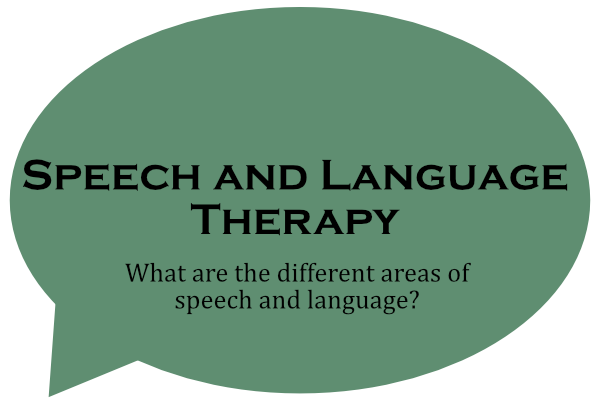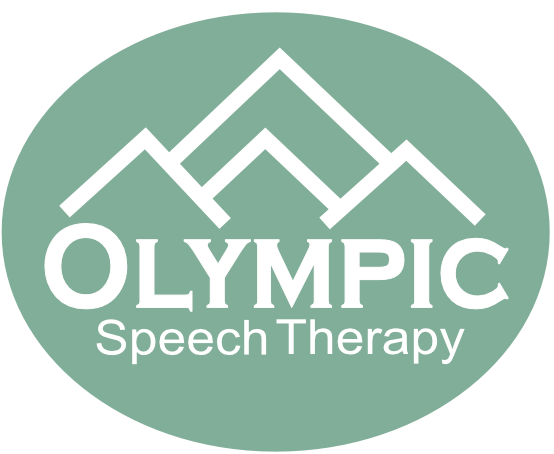
Speech Sound Production
Articulation disorders focus on errors (e.g., distortions and substitutions) in production of individual speech sounds.
Phonological disorders focus on predictable, rule-based errors (e.g., fronting, stopping, and final consonant deletion) that affect more than one sound.
It is often difficult to cleanly differentiate between articulation and phonological disorders; therefore, many clinicians prefer to use the broader term, “speech sound disorder,” when referring to speech errors of unknown cause.
Language
Expressive language is our ability to communicate our thoughts and feelings through words, gestures, signs, and/or symbols. It can be as simple as pointing to a desired object or as complex as writing a book about an area of interest.
Receptive language is the understanding of information provided in a variety of ways such as sounds and words; movement and gestures; and signs and symbols. Children often acquire elements of receptive language faster than expressive language
Some children may have delays in expressive language, receptive language, or both!
Gestalt Language Processing
Gestalt Language Processing, also known as Natural Language Acquisition, is a form of language development that starts with whole memorized phrases and sentences rather than one word at a time.
We typically think of language development as gaining single words, then combining two and three word phrases. However, for gestalt language processors, the basic unit of language is not a word; it is a ‘chunk’ of language. For example, a gestalt language processor may use whole lines from favorite movies or tv shows as one chunk. They would not recognize the individual words within the phrase, but would see it as a whole. We call these ‘chunks’ gestalts or scripts. You may also have heard this referred to as ‘delayed echolalia.’ This way of acquiring language is seen in most children on the Autism Spectrum. Sometimes gestalt language processors begin using language in long unintelligible scripts with lots of intonation. Gestalt language processors are also known as “intonation babies” as their gestalts are usually rich intonation and often are correlated to a strong emotion.
Remember that a script (gestalt) doesn’t have to mean what it says literally. “Are you okay?” could mean “I’m hurt!” because the child often hears that question when something is wrong. It is important to be detectives to figure out where the gestalts came from and what they could mean.
Augmentative Alternative Communication (AAC)
Augmentative and alternative communication (AAC) supplements or compensates for impairments in speech-language production and/or comprehension, including spoken and written modes of communication. AAC falls under the broader umbrella of assistive technology, or the use of any equipment, tool, or strategy to improve functional daily living in individuals with disabilities or limitations.
AAC uses a variety of techniques and tools to help the individual express thoughts, wants and needs, feelings, and ideas, including the following:
- manual signs
- gestures
- finger spelling
- tangible objects
- line drawings
- picture communication boards and letter boards
- speech-generating devices
AAC is augmentative when used to supplement existing speech, alternative when used in place of speech that is absent or not functional.
